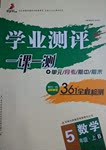题目内容
阅读下面短文,掌握其大意,然后从1—15各题所给的A、B、C和D项中,选出最佳选项,并在答题卡上将对应的该项涂黑。
When asked to point out one or two things that are most important to themselves,many put friends ahead of homes,jobs,clothes and cars.
A true carries a long history of experience that determines who we are and keeps us connected. It is a we should prove it. ,the better friends you are,the more probably you’ll have disagreements. And the can be what you don’t want an end to finish the relationship.
The good news is that most troubled friendships can be .First,don’t let your pride get in your way. Most of us can forgive each other when are brought out in the open. Second,____when you’re wrong-even if you’ve been . Over the course of friendship, the best people make mistakes. Sometimes,it may be best if the wronged person the lead and apologizes. When you apologize,give your friend a to admit that he has been wrong. Third,see things from your point of view. And accept that friendships change as our needs and lifestyles change. Making friends can sometimes seem . The hard part is ____the connections strong during the nature ups and downs that have an effect on all relationships. My suggestion:Consider friendship an honor and a gift,and worth the effort to treasure and nurture(培养).
1.A. friendship B.love C.relationship D.care
2.A. wealth B.gold C.jewellery D.treasure
3.A. Personally B.Naturally C.Unfortunately D.Luckily
4.A. result B.pace C.future D.minute
5.A. finished B.mended C.changed D.prevented
6.A. discussions B.questions C.differences D.interests
7.A. admit B.punish C.flee D.apologize
8.A. blamed B.wronged C.punished D.praised
9.A. still B.even C.yet D.ever
10.A. takes B.gives C.gets D.makes
11.A .reason B.cause C.chance D.time
12.A. brother’s B.father’s C.enemy’s D.friend’s
13.A. properly B.finally C.really D.merely
14.A. difficult B.hard C.easy D.likely
15.A.keeping B.letting C.proving D.remaining
1.A
2.D
3.C
4.A
5.B
6.C
7.D
8.B
9.B
10.A
11.C
12.D
13.B
14.C
15.A
【解析】
试题分析:文章大意:当被问到人生中什么最重要时,人们往往会提到友谊。的确,友谊能照亮我们的人生,但是友谊越深厚,就越可能有分歧。本文主要讲述了当友谊出现分歧和裂痕时,如何去挽救处于崩溃边缘的友谊。在本文中作者给出了几条建议,比如把分歧坦白地讲出来,就能够取得彼此的谅解,能挽救这段友谊。
1. friendship友谊; B.love 爱; C.relationship 关系; D.care关心。在下文中多次提到friends,friendship等,而且根据全文内容可知文章的中心内容是谈论友谊,故答案选A。
2. wealth 财富; B.gold 黄金; C.jewellery 珠宝; D.treasure宝藏,珍宝。从情理可知真正的友谊是一种财富,wealth是不可数名词,而gold和jewellery指具体的物品,故答案选D。
3. Personally个人地; B.Naturally 自然地; C.Unfortunately不幸地; D.Luckily幸运地。上文提到友谊是一种财富,而下文表述的内容却是好朋友之间容易产生分歧,所以这是不幸的事情,选C。
4. result 结果; B.pace 步伐,脚步;C.future未来; D.minute分钟。根据句子后部分内容可知这是朋友之间产生分歧后造成的结果,选A。句意:结果可能就是你所不希望的情况---友谊的结束。
5. finished 完成; B.mended 修理; C.changed改变; D.prevented防止。上文提到朋友间产生分歧后容易出现友谊的破裂,而此处的“good news”暗示友谊可以重新获得或者裂痕可以弥补,故答案选B。
6. discussions讨论; B.questions 问题;C.differences 不同,区别; D.interests兴趣,利益。根据上文内容可知友谊的破裂往往是因为朋友间出现的“disagreements.”,所以当所有的分歧被当面提出来后,一切就可以解决了,选C。
7. admit承认; B.punish惩罚; C.flee逃离; D.apologize道歉。根据情理可知做错了事情要道歉,而且下文中的When you apologize,也是提示信息,填D。
8. blamed责备; B.wronged 冤枉; C.punished惩罚; D.praised表扬。根据前句内容和even if“即使,尽管”可以判断作者建议人们做错事情的时候要道歉,即使是被冤枉的时候也要主动道歉,这样有益于友谊的保持,下文中的the wronged person也是提示信息,故答案选B.
9. still仍然; B.even甚至; C.yet 然而;D.ever曾经。从语境判断作者指任何人都会犯错,即使是最优秀的人也一样,此处表示一种让步关系,故答案选B。
10. takes 带走; B.gives 给予;C.gets 得到; D.makes制成。固定短语:take the lead“领头,带头”。选A。句意:有时候,如果被冤枉的人首先道歉的话,可能会有更好的结果。
11. reason 原因;B.cause 缘由,起因;C.chance 机会; D.time时间。从语境判断此处指给对方一个承认错误的机会,短语:a chance to do sth,其他不符合语境。
12. brother’s 兄弟的; B.father’s 父亲的; C.enemy’s敌人的; D.friend’s朋友的。从上文可知文章讲述的是如何修复出现分歧的友谊,所以应该从朋友的角度去看问题,选D。
13. properly 恰当地;B.finally 最终,最后;C.really 真正地; D.merely仅仅,只。根据上文引起几条建议的连接词First,second ,Third,可以判断此处填finally,表示顺序。
14. difficult 困难的; B.hard 艰难的; C.easy 容易的; D.likely可能的。根据后句中The hard part可以判断此处指交朋友容易,但是保持友谊难,选C。
15. keeping 保持;B.letting 出租,让; C.proving证实; D.remaining剩下。从上文讲述的内容可知交朋友容易,但是坚守一份友谊不容易,友谊的维持需要双方的努力,所以填A。
考点:考查社会生活类短文阅读

 活力课时同步练习册系列答案
活力课时同步练习册系列答案 学业测评一课一测系列答案
学业测评一课一测系列答案